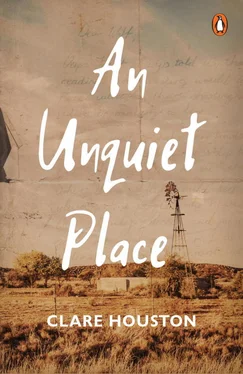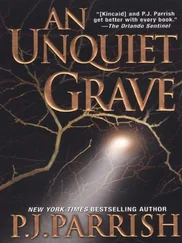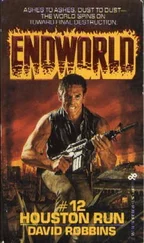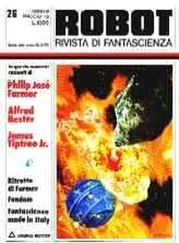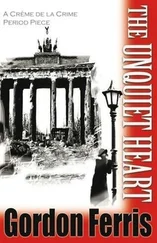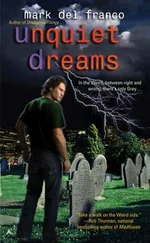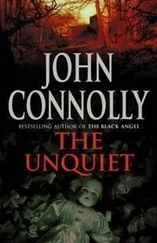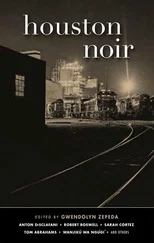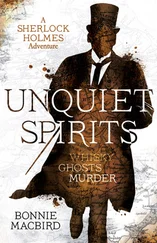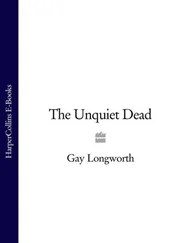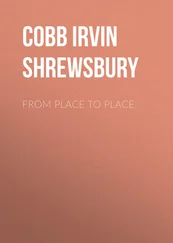‘If you had to set up a tent or a shelter on open stony ground, what would you do first?’
‘Clear the stones,’ said Alistair.
‘And that’s what these people would have done. Nobody’s going to sleep for two years with stones under their bedding. Also, just the act of living in a space, the foot traffic, the weight of bodies and possessions, would compact the ground over time. Then, when the camp is dissolved, the tents gone, and the veld regrows, the vegetation growing on those compacted spots will be more stunted than in other places.’
‘It’s fascinating, Josey.’ Hannah looked up at him with a smile.
He grinned back at her. ‘There’s something else you can see on these pictures. Look here.’ His finger marked a number of spots. Hannah and Alistair both stared at the picture, then looked at him blankly. ‘Make that, something only I can see,’ Joseph said with a wink. ‘I think this area may have been a cemetery. I can count at least twelve obvious places which look like low, long cairns of rock. But these are too even in size simply to be random piles of stones. I reckon that if we examine this place’ – he circled a wide area on the photo – ‘we’re going to find graves.’
‘Twelve graves sound way too few to be a camp cemetery, especially how Rachel describes it,’ said Hannah.
‘I can identify at least twelve cairns on the photos,’ said Joseph, standing up and stretching his arms behind him. ‘We might find more on the ground, and then some graves might not be marked with stones. We just don’t know at the moment, but we have twelve graves as a start. That’s significant, Hannah.’
‘What are you busy with at the moment?’ said Alistair.
‘We’re using GIS and mapping the site. It’s terribly tedious, but we have to do it. With so many workers, it shouldn’t take too long, but we’re systematically combing the surface of the site and marking anything we find on our GIS grid without removing the item.’
‘Have you found anything yet?’ said Hannah. ‘Apart from our ration tin, I wouldn’t think much would be left on the surface after a hundred or so years.’
‘More than you would think, especially on a site so remote. The surface has hardly been touched, even by animals. Your ghosts have been doing a really good job keeping everything away.’
‘They’re not my ghosts,’ muttered Hannah, earning a fleeting smile from Alistair.
‘So far,’ continued Joseph, picking up a notebook from the counter behind him, ‘we’ve found some shards of glass, part of a hoe, a tiny earring, a piece of what looks like crate strapping, and some odd bits of leather – one piece might be some plaited rope. Oh, and the best so far, a ration tin with a handle ingeniously hammered on to it.’ He looked up proudly.
‘It doesn’t sound like much, Josey,’ said Hannah, and Alistair could see his face fall somewhat. He wondered if perhaps Joseph’s confidence had some weak points after all. Or was it that, in getting to know him, Joseph was becoming easier to read? That the easy-going, unshakeable surface had always been just that, a thin veneer for strangers?
‘It doesn’t seem like much to you maybe,’ said Joseph, ‘but to an archaeologist, that’s really good.’
‘Why is the ration tin important?’ said Alistair.
‘It tells us that they didn’t have much crockery, if they had to improvise cups from ration tins. When we have all the official permits lined up, we’ll be able to examine the artefacts more closely, research each one to find out what it is and where it came from. Just think, determining whether a shard of glass comes from a medicine bottle or a whisky bottle tells us something significant about the camp, doesn’t it? And this is just the surface scatter!’ he said.
‘How is the official side of things coming along?’ said Alistair. ‘Do you need any more help with it?’
‘No, your part is done. I’ve finished most of the application. I just need to include the artefacts from the surface survey. We should finish that this week. I thought I would go in person to SAHRA. Nothing speeds up an application like someone hanging around, waiting for it. I’m good at sitting politely in people’s offices until they do the paperwork to get rid of me.’
‘I can just see you doing that,’ said Hannah, shaking her head.
‘Any progress on your side?’ said Joseph.
‘No, not since Bloemfontein. I’d like to go through to Winburg at some point to see the family’s graves, but that’s more of a personal pilgrimage than pertinent to the camp. I’ve got a strong feeling there’s more in Gisela’s cottage.’ Joseph looked confused and Hannah went on, ‘You know, Karl’s mother had a little house on Silwerfontein? I want to go through that house again, look at the album, the Bible, everything. I think I missed something there. Anyway, it’s pointless even talking about it, because there’s no way any of us will get access there now. Not after the picnic.’
‘Please don’t even try, Hannah,’ said Alistair, his stomach clenching at the thought of Hannah meeting Esme again.
‘What about the journal, Hannah? Are you finished?’ said Joseph, still focused on the camp.
‘Almost. I have one last section to do, then I can make copies and give you each one. Maybe when you read it you’ll see why I’ve grown so attached to Rachel.’ Alistair reached over to touch her arm, then dropped his hand. Watching her in his kitchen, looking so relaxed, he felt his heart contract, like new scar tissue pulling. He was still waiting for her to make a decision. Every day that passed without her coming to see him hurt. As much as he wanted to give in, just sink into something easy just to be with her, his heart couldn’t risk it.
‘And you, Alistair, anything new?’ said Joseph.
‘I told you about the blockhouse lines. From what I’ve managed to find out, there was a hang of a lot of British and Boer movement after Surrender Hill. The British camped down the Fouriesburg road, then they camped right near us here, probably mopping up problems. Then they moved out of the area and set up command centres in Bethlehem and Ficksburg. At that point, the mobile remnants of the commandos came out of the woodwork and moved through here a lot. The blockhouse lines stopped large-scale movement and sabotage of the bridges and railway lines. But they couldn’t stop small units of Boers cutting their barbed wire or simply pulling their fence posts out the ground and riding underneath them.’
‘In a nutshell?’ said Joseph.
‘Sorry, I get carried away with this stuff.’ Alistair’s smile was rueful. ‘In a nutshell, I can find no reference to a camp here, but I can’t find a reason why there shouldn’t have been one. There were enough civilians in the area to warrant a refugee camp, and enough soldiers in the area to warrant the camp’s growing food for them.’
‘That’ll do,’ said Joseph, gathering the photographs into a pile and slipping them into a folder.
‘Something which has been bothering me,’ said Hannah. ‘Why send Rachel’s family all the way to Winburg and send her to Goshen? Surely other families in the area would have been sent to Goshen too, and people would have heard about it?’
‘From the stories I’ve heard,’ said Alistair, ‘camp allocations were pretty random. One Leliehoek family was split and some sent all the way to Heilbron. That’s miles from here. Another thing I’ve noticed is that the only way details like that are still known today is because someone kept a journal. Most modern families wouldn’t know which camp their great-great-great-granny was in, or perhaps even care.’
‘So,’ continued Hannah, ‘some families might well have been sent to Goshen but not kept a written record to pass on.’
Читать дальше
